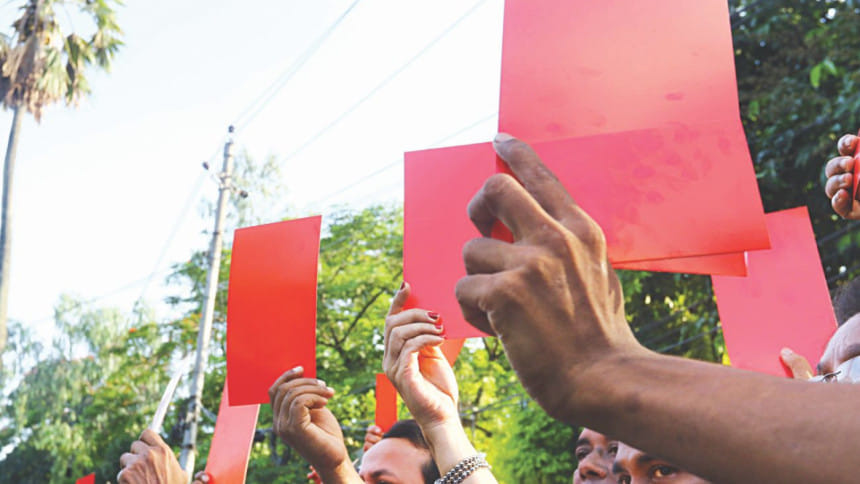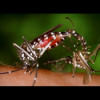Mayor sorry for mosquito remarks

Dhaka North's Mayor Annisul Huq yesterday regretted his remarks on controlling Aedes mosquitoes and the chikungunya outbreak in the city.
Talking to the Daily Star, he said he made the comments in response to a specific question by a journalist about the DNCC's awareness campaign on using mosquito nets.
“But the way I said it, I might have failed to express myself properly.
“We wanted to say that we don't have the scope to go inside homes. If anyone felt hurt by my comment, I am sorry,” Annisul said.
The city corporation took various initiatives to fight chikungunya, he added.
Annisul at a press conference on Friday blamed the mosquito population inside homes for the chikungunya outbreak saying he could not tie mosquito nets at homes, but was “sorry” for people's sufferings.
He shrugged off the criticism that the city corporation was doing very little to tackle the menace.
Aedes mosquitoes responsible for infecting people with chikungunya virus breed in clear water mostly inside homes, he said, adding the city corporation could not go inside people's homes to stop mosquitoes from spreading.
Yesterday, the mayor inaugurated an awareness rally in the city's Gulshan on controlling mosquitoes. He told journalists that he could not express himself properly the day before.
Meanwhile, teachers, students, writers and rights activists at a protest rally in the capital's Shahbagh showed “red cards” to both the Dhaka city mayors for failing to control Aedes mosquitoes.
They staged the demonstration as a symbol of warning Annisul and Dhaka South City Corporation Mayor Sayeed Khokon so that they become more active to kill the mosquitoes and control the disease.
They also condemned the DNCC mayor's remarks saying that a responsible person like him cannot make such comments.
“It's unfortunate that we are forced to show red cards to the elected public representatives,” said Lina Parveen, a student.
“You [mayor] don't have to kill the mosquitoes inside homes. You take care of mosquito breeding grounds in open public places,” she added.
The number of chikungunya cases has been on the rise with city dwellers blaming the authorities' failure to take timely and preventive actions.
The number of reported chikungunya cases rose to around 3,000 on Thursday from 2,748 and 2,700 on the previous two days, said Prof Meerjady Sabrina Flora, director of the Institute of Epidemiology, Disease Control and Research (IEDCR).
However, the actual number of cases could be higher as many go unreported.
On July 11, Health Minister Mohammed Nasim and his deputy Zahid Maleque blamed the two city corporations for the chikungunya outbreak in the capital, saying they failed to control the Aedes mosquitoes.
Chikungunya virus, which is transmitted to people by infected Aedes mosquitoes, started spreading in the city about two and a half months ago.
Symptoms of the viral disease include fever, muscle pain, headache, nausea, fatigue, rash and these are often accompanied by a very debilitating joint pain which can last for days.

 For all latest news, follow The Daily Star's Google News channel.
For all latest news, follow The Daily Star's Google News channel. 







Comments